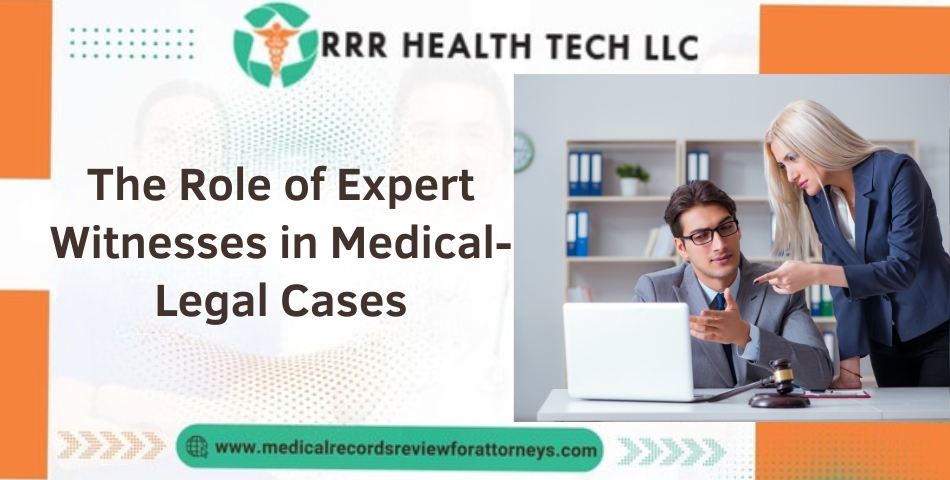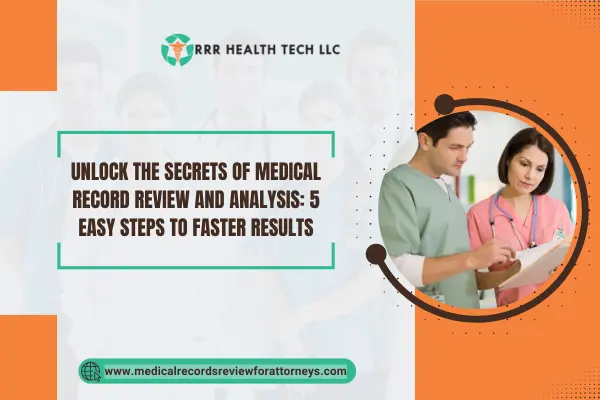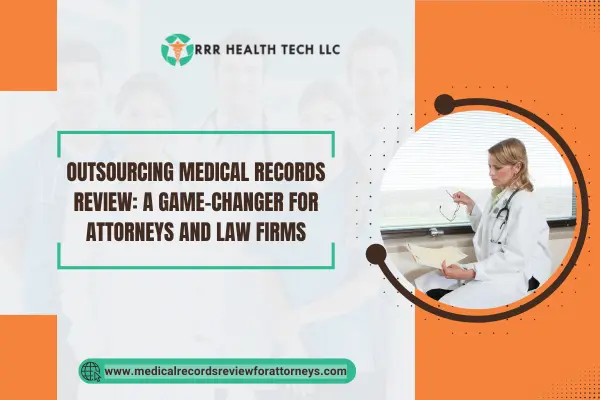Introduction: Why Expert Witnesses Matter in Medical-Legal Cases

When medical issues become legal disputes, expert witnesses serve as the bridge between complex medical facts and legal proceedings. Whether it’s a medical malpractice case, a personal injury claim, or even a criminal trial, these professionals provide critical insights that help judges and juries make informed decisions.
But what exactly do expert witnesses do, and why are they so essential? This article explores their role, qualifications, and impact on court cases.
What is an Expert Witness?
Definition and Qualifications
An expert witness is a highly qualified professional with specialized knowledge in a particular field, called upon to provide an informed opinion in legal cases. In medical-legal disputes, these experts are often doctors, nurses, forensic pathologists, or other healthcare professionals.
To qualify as an expert witness, a person must demonstrate:
- Advanced education in their field
- Significant professional experience
- Recognized credentials, such as board certifications
- A history of research, publications, or previous testimony
Unlike fact witnesses, who can only testify about what they saw or experienced firsthand, expert witnesses can offer professional opinions based on their expertise.
Types of Expert Witnesses in Medical Cases
Not all medical expert witnesses serve the same purpose. Here are the common types used in legal cases:
1. Medical Professionals
- Doctors & Surgeons – Testify about proper medical procedures, diagnoses, and treatments.
- Nurses & Medical Staff – Provide insights into hospital procedures and patient care.
2. Forensic Experts
- Pathologists – Analyze autopsy results to determine cause of death.
- Toxicologists – Examine the presence of drugs, alcohol, or toxins in the body.
3. Mental Health Experts
- Psychiatrists & Psychologists – Evaluate mental competency, trauma, or psychological damages.
Each of these experts plays a specific role depending on the nature of the case.
Legal Standards for Expert Testimony
For expert testimony to be considered in court, it must meet specific legal standards. The two most widely used standards in the U.S. are:
1. The Daubert Standard
- Used in federal courts and many states.
- Requires the testimony to be based on scientifically valid reasoning and methodology.
2. The Frye Standard
- Used in some state courts.
- Focuses on whether the expert’s methods are widely accepted by the scientific community.
Judges act as “gatekeepers” to ensure expert testimony meets these legal requirements before it’s presented to a jury.
The Role of Medical Expert Witnesses
Providing Objective Medical Opinions
Medical expert witnesses serve as independent professionals who clarify complex medical issues for the court. Their primary responsibility is to provide an objective analysis based on their expertise, ensuring that the legal process is guided by factual medical information.
Their role often includes:
- Explaining medical procedures and terminology – They break down complicated concepts so that judges and juries can understand them.
- Assessing injuries or medical conditions – They evaluate whether an injury or condition resulted from malpractice, negligence, or other factors.
- Determining standard of care violations – They analyze whether a healthcare provider deviated from accepted medical standards.
- Estimating long-term medical impact – In cases involving personal injury, they may assess the lasting effects of an injury.
A well-prepared medical expert witness strengthens a legal argument by presenting evidence in a clear, factual manner.
How Expert Witnesses Influence Court Decisions
The Weight of Expert Testimony in Legal Outcomes
Expert witnesses can significantly impact the outcome of a case. Their testimony often serves as the backbone of legal arguments, influencing:
- Jury Perception – A credible expert can sway a jury’s understanding of medical facts.
- Settlement Negotiations – Strong expert testimony may lead to out-of-court settlements, avoiding lengthy trials.
- Judicial Rulings – Judges may rely on expert reports when making pre-trial rulings.
For example, in a malpractice case, if an expert testifies that a doctor’s misdiagnosis directly led to a patient’s suffering, it can strongly support the plaintiff’s claim. Conversely, an expert for the defense may argue that the doctor followed standard medical practices.
Expert Witnesses in Malpractice Cases
Proving or Disproving Medical Negligence
Medical malpractice cases hinge on whether a healthcare provider acted negligently. Expert witnesses play a key role in determining if a:
- Doctor deviated from the standard of care – Did they follow established medical practices?
- Patient suffered harm due to negligence – Was the provider’s mistake the direct cause of injury?
- Alternative medical explanations exist – Could the patient’s condition have worsened regardless of the doctor’s actions?
Courts heavily rely on expert opinions to assess whether a provider is legally responsible for damages.
Expert Witnesses in Personal Injury Cases
Assessing Injuries and Their Long-Term Effects
In personal injury lawsuits—such as car accidents, workplace injuries, or product liability claims—medical experts provide crucial insights into:
- The severity of the injury – Is it temporary or permanent?
- Future medical needs – Will the victim require ongoing treatment or rehabilitation?
- Pain and suffering evaluation – How has the injury affected the victim’s quality of life?
For example, in a case involving a spinal injury from a car crash, a neurologist might testify about the long-term impact on mobility and daily activities.
The Ethical Responsibilities of Medical Experts
Objectivity, Bias, and Professional Conduct
Medical expert witnesses must adhere to strict ethical guidelines. Their duty is to present an unbiased analysis, not advocate for one side. Ethical responsibilities include:
- Remaining truthful – Avoiding exaggeration or misrepresentation of facts.
- Using evidence-based opinions – Basing testimony on medical literature and best practices.
- Avoiding conflicts of interest – Not having financial or personal ties that may compromise objectivity.
Failing to meet these standards can result in credibility loss, legal consequences, and professional repercussions.
How Attorneys Select the Right Expert Witness
Qualifications, Credibility, and Experience
Selecting the right expert witness is crucial for building a strong case. Attorneys consider several factors when choosing a medical expert:
- Relevant Specialization – A cardiologist would be ideal for a heart-related malpractice case, while an orthopedic surgeon would be better suited for a bone injury claim.
- Strong Credentials – Board certifications, peer-reviewed publications, and teaching experience add credibility.
- Courtroom Experience – Experts who have testified before are more likely to handle cross-examinations effectively.
- Clear Communication Skills – The ability to explain complex medical concepts in simple terms is essential for persuading a jury.
A well-qualified and experienced expert can significantly strengthen a legal argument and increase the chances of a favorable outcome.
The Challenges Expert Witnesses Face in Court
Cross-Examinations and Credibility Attacks
Expert witnesses must be prepared to defend their opinions under intense scrutiny. During cross-examinations, opposing attorneys often try to:
- Challenge their expertise – Questioning their qualifications and experience.
- Find inconsistencies in testimony – Pointing out contradictions in prior statements or reports.
- Expose potential biases – Suggesting that the expert has a history of testifying primarily for plaintiffs or defendants.
To maintain credibility, expert witnesses must remain calm, professional, and confident while presenting their findings.
The Cost of Hiring an Expert Witness
Factors Affecting Fees and Expenses
Hiring a medical expert witness can be expensive due to their high level of specialization. Costs typically include:
- Consultation Fees – Charges for reviewing medical records and forming an opinion.
- Deposition Fees – Fees for pre-trial sworn testimony.
- Trial Testimony Fees – Higher rates for appearing in court.
- Travel and Accommodation Expenses – If the expert needs to travel for court appearances.
Depending on the complexity of the case and the expert’s reputation, total costs can range from a few thousand to tens of thousands of dollars.
Case Studies: Notable Medical-Legal Cases with Experts
Real-World Examples of Expert Witness Impact
Medical expert witnesses have played pivotal roles in high-profile cases, such as:
- The O.J. Simpson Trial – Forensic pathologists debated the cause of injuries and blood evidence.
- The Terri Schiavo Case – Neurologists provided conflicting opinions on her persistent vegetative state.
- Medical Malpractice Lawsuits – Cases where expert testimony proved whether a doctor’s mistake caused harm.
These cases highlight how expert witnesses can influence legal outcomes with their testimony.
Expert Witness Testimony: Written vs. Oral Reports
The Importance of Clear and Concise Opinions
Medical experts provide testimony in two main forms:
- Written Reports – Detailed documents outlining their medical opinions, often submitted before trial.
- Oral Testimony – In-person explanations in court, where they may face cross-examination.
Both formats require clarity, accuracy, and professionalism to effectively support a legal argument.
The Role of Experts in Criminal vs. Civil Cases
Differences in Medical Testimony in Different Legal Contexts
Medical expert witnesses participate in both civil and criminal cases, but their roles can vary:
- In civil cases (malpractice, personal injury) – They assess damages, medical negligence, and long-term health effects.
- In criminal cases (assault, homicide) – They determine causes of injuries or death, mental competency, and forensic evidence.
Their testimony can mean the difference between conviction and acquittal in criminal cases or between winning and losing a lawsuit in civil cases.
Regulatory and Legal Considerations for Expert Witnesses
Licensing, Certification, and Legal Limitations
To testify in court, medical experts must:
- Hold active medical licenses – Some jurisdictions require experts to be currently practicing.
- Maintain board certifications – Experts must be qualified in their respective fields.
- Follow jurisdictional rules – Some states impose restrictions on out-of-state experts testifying.
These regulations ensure that only qualified and reputable experts provide testimony in legal cases.
Common Myths About Medical Expert Witnesses
Dispelling Misconceptions
There are several myths about expert witnesses, such as:
- “They always side with the hiring attorney.” – Experts are required to provide unbiased opinions based on evidence.
- “They only testify for money.” – While they are compensated, ethical experts prioritize accuracy and integrity.
- “They guarantee case outcomes.” – Their role is to present facts, not to determine verdicts.
Understanding these misconceptions helps appreciate the true value of expert witnesses in legal proceedings.
Conclusion: The Lasting Importance of Medical Expert Witnesses in Justice
Medical expert witnesses play an essential role in bridging the gap between medicine and law. Their specialized knowledge helps courts make informed decisions in malpractice, personal injury, and criminal cases. Whether they are clarifying medical facts, assessing injuries, or determining standards of care, their testimony can be the key to achieving justice.
By upholding ethical standards, presenting objective opinions, and effectively communicating complex medical issues, expert witnesses ensure that legal cases are decided based on accurate and credible medical evidence.
Need Expert Medical Review for Your Legal Case?
Attorneys trust our medical records review firm to provide accurate, unbiased, and expert analysis for malpractice, personal injury, and criminal cases. Whether you need a thorough case evaluation, expert testimony, or detailed medical opinions, our specialists are here to help.



